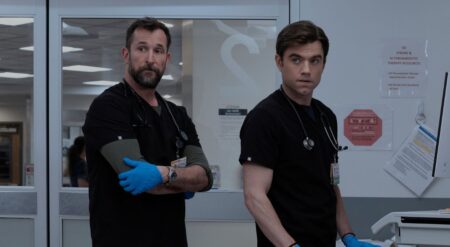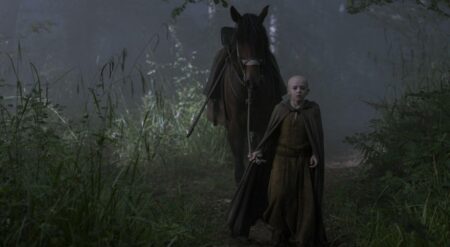Netflix’s The Crown Season 3 has arrived with new cast members portraying the Royals. The season tackles the period between 1964 and 1977 for the Royal Family. It’s a period marked by significant socio-economic change, and Queen Elizabeth II (Olivia Coleman) struggles, even more, to define her and her family’s position during this period. On the whole, it makes for a compelling, if sometimes sluggish, watch.
Smartly, the show begs the question of the necessity of the monarchy. Spending millions of taxpayer pounds to help ensure the garish wealth of one family is beyond absurd. The show and some of the characters are aware of this. Progressive republicans in the show must continue to deal with the absurdities of the monarchy. It’s a testament to the power that traditions hold in British society that the monarchy could even still exist today. And it’s our global obsession with the Windsor family that gives them some of this power as well. But of course, as the creators of the show know, that obsession is damaging to them as well.
The best thing about The Crown is how effectively it portrays the Royals as three-dimensional people. They are not divine. They are human, born into an extraordinary situation. Tradition has told them their opulence and stature are normal. This season delves further into how unfair the institution is to the family members. In different ways, it is oppressive to their mental health. Any relatable human fallacy is met with a harsh crackdown. This is most clear with Princess Margaret (Helena Bonham Carter) and Prince Charles (Josh O’Connor).
Coleman is stellar as Queen Elizabeth. She does such an effective job of playing both the character and the real Elizabeth Windsor. This season sees the Queen continue to question how close she wants to be with her public. For her, it is often a question of propriety. While she takes duties extremely seriously, the show seems to settle on a point that she never wanted this. It presents her as almost resentful about having to be in this position. Coleman balances sternness and poignancy to make a powerful performance.
Despite her resentment, Elizabeth takes her duties extremely seriously anyway. She truly buys into the myth of the monarchy’s importance, and she is keen that her family members do as well. Her determination that her family falls in line makes for some great drama, resulting in some standout performances.
Helena Bonham Carter’s Princess Margaret is mesmerizing. The iconic actress breathes temperament as Margaret. One word to describe Margaret this season is simply “dissatisfied.” She continues to be dissatisfied with her role and expectations. She wants so much more. The opposite of her sister, she craves the limelight and public adoration. Episode 2 has a great focus on the relationship between the sisters and the many-layered ways in which they are opposite from one another.
Despite having thought she finally found happiness with her husband, Lord Snowdon (Ben Daniels), it turns out neither she nor her husband is satisfied, leading to their strife. Bonham Carter plays this deeply dissatisfied person with nuance, grace, and passion, continuing to make Margaret a standout character on the show. The only downside is that we don’t get to see enough of her.
The Crown Season 3 introduced Josh O’Connor as an adult Prince Charles.

The show introduces us to an adult Prince Charles who begins to question his own place in all this. He attempts to assert his individuality in his family, and in doing so draws their ire. Increasingly, he becomes convinced that they stand in the way of his happiness, and with some good reason as this season displays. As generally goes with this show, we don’t know how much of their personal disputes are fabricated.
But what it does do is portray Charles as a very sympathetic figure. It’s rather ironic, as Prince Charles’ aides were reported as being “paranoid” about his portrayal on the show and how it would affect his popularity as the future King. At least so far they shouldn’t be worried. It will be interesting, to say the least, to see how the show portrays events in his later life.
The one weak link for me this season was the royal spouse, Philip (Tobias Menzies). I had a distaste for him before, as Matt Smith had played him as an insecure and irritating presence. That’s not to say Smith’s performance was bad, or used badly, but rather a testament to my own perception. This older Philip is less annoying and Menzies plays him well, but sometimes has more focus on him than seems necessary.
He is more accustomed to the extravagancies of the Crown and is eager to preserve their standing. So much so that he is presented as the one to come up with the idea to have the Royal Family engage in a documentary to make them “relatable” to the public, and show that they’re “deserving” of taxpayer money. It’s delightfully absurd but also shows how little story there really is for him. Even a storyline with the astronauts of the moon landing centering Philip is rather dull.
However, Philip was used well within the episodes of The Crown with his mother, Princess Alice of Battenberg (Jane Lapotaire). A heroic humanitarian who shed the traditions of Royal life, we see her during her last days. Lapotaire plays someone stunningly different from her son and family, and the results are both entertaining, and even a little heartbreaking, to watch. She plays someone bewildered by the world of the British Court, even though she was supposed to have known a life similar to this. It’s a truly stunning performance that elevates the season.
The Crown Season 3 is overall a great watch. It lags in places, particularly in episodes that heavily focus on Philip, but otherwise, it’ll give you a great and entertaining insight into the Royals’ internal drama, real or emphasized into fiction. Besides that, the historical observation of a transforming Britain is insightful and exciting.
The Crown Season 3 is streaming exclusively on Netflix.
The Crown Season 3
-
Rating - 8.5/108.5/10
TL;DR
The Crown season 3 is overall a great watch. It lags in places, particularly in episodes that heavily focus on Philip, but otherwise, it’ll give you a great and entertaining insight into the Royals’ internal drama, real or emphasized into fiction.







